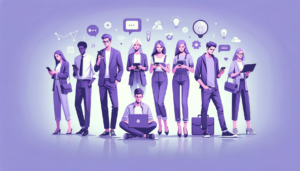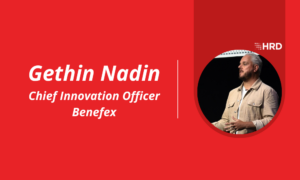The age of agility: Flexible, adaptable and resilient benefits
- 4 Min Read
Almost overnight, the COVID-19 pandemic transformed the work experience for millions of people across the globe. According to estimates from the International Labour Organization, 93% of the world’s workers continue to reside in countries with some sort of workplace closure measure in place . Countless employees have found themselves being forced to work from home […]
- Author: Darwin
- Date published: Oct 8, 2020
- Categories

Almost overnight, the COVID-19 pandemic transformed the work experience for millions of people across the globe. According to estimates from the International Labour Organization, 93% of the world’s workers continue to reside in countries with some sort of workplace closure measure in place . Countless employees have found themselves being forced to work from home – many for the first time – while even more were furloughed or lost their jobs altogether.
For HR, the impact has been huge. Rarely has the spotlight shone so brightly on this function, and many have felt the strain as they do their best to support their employees through this incredibly difficult time. In particular, the huge rise in remote working has exposed flaws in many employers’ benefits packages and benefits management systems (or lack thereof, in some cases). Employees have sometimes found it hard to access details on their reward and benefits from home, while some have complained that their employers haven’t done enough to tailor their existing benefits to meet their shifting needs.
An opportunity for reinvention
Crises such as these cause major disruption. But with disruption often comes the opportunity to reflect, reset and reinvent. The COVID-19 pandemic has brought a shift in focus for many employers, from business outcomes to employee welfare.
Research by the Top Employers Institute, for example, found that several major organizations are prioritizing the wellbeing and protection of their employees at this time, including Coca Cola, Infosys and DHL. Based on this, employers worldwide should reflect and examine the benefits they are offering their people – and the platforms they are using to administer and deliver them – making sure they’re expressly designed to enhance the employee experience.
Employers need to recognize there will be no return to ‘business as usual’ for the foreseeable future and instead they need to adapt to the ‘new normal’. They must ensure their employees’ changing needs are supported, no matter where they’re based. The workforce has been forced to cope with unprecedented change, but this can also be a unifying experience that helps build trust and loyalty between employers and their workers, and this must continue to be nurtured.
Benefits systems need to be more flexible, more adaptable and more resilient
The current crisis has also highlighted the fragility of many employers’ existing employee benefits systems, many of which weren’t designed to be accessed or managed remotely. Employers without digital solutions that are fit for the future of work will find it increasingly difficult to cope with the demands of a global workforce. They need platforms that are more flexible, more adaptable and more resilient.
These will be essential to delivering that all-important employee experience. Systems need to be secure enough to handle processes over home WiFi connections and easy enough to use to keep employees engaged while working remotely. Employers that already have robust systems in place will lead the recovery – others need to catch up quickly or risk falling even further behind.
Existing priorities have been magnified
COVID-19 has also magnified employers’ existing priorities and made them more urgent. Over the past few years, organizations have been focused on developing benefits programs that provide a consistent experience for employees no matter where in the world they are working. The importance of making sure every member of staff feels they ‘belong’ within their organization has never been clearer, and multinational employers are likely to be focusing even more strongly on creating a globally consistent reward and benefits experience for all their employees. The current crisis has demonstrated that this is not just an aspiration – it is a business necessity.
HR still needs to truly harness the power of data
Finally, evidence will be integral to proving the value of new policies and practices as we move beyond the current crisis. With budgets slashed and under ever tighter control, HR and reward will need to demonstrate a return on their investments now more than ever. But data analysis continues to be an area for improvement in many HR departments, with data systems difficult to use and data quality often lacking.
Employers and providers need to work hand-in-hand to build systems that support straightforward data collection and analysis, which can provide clear evidence of ROI and provide actionable insights for senior leaders.









